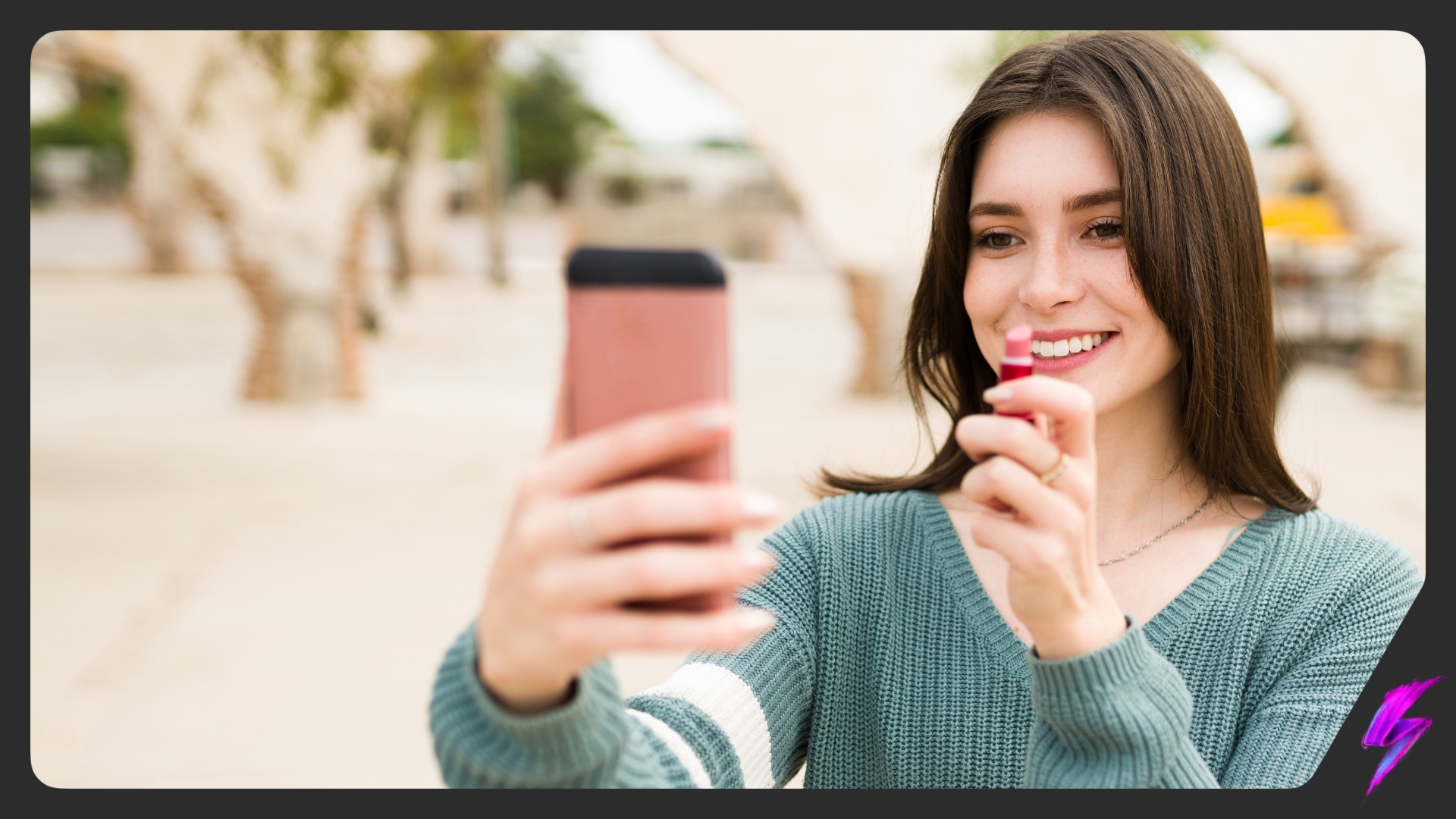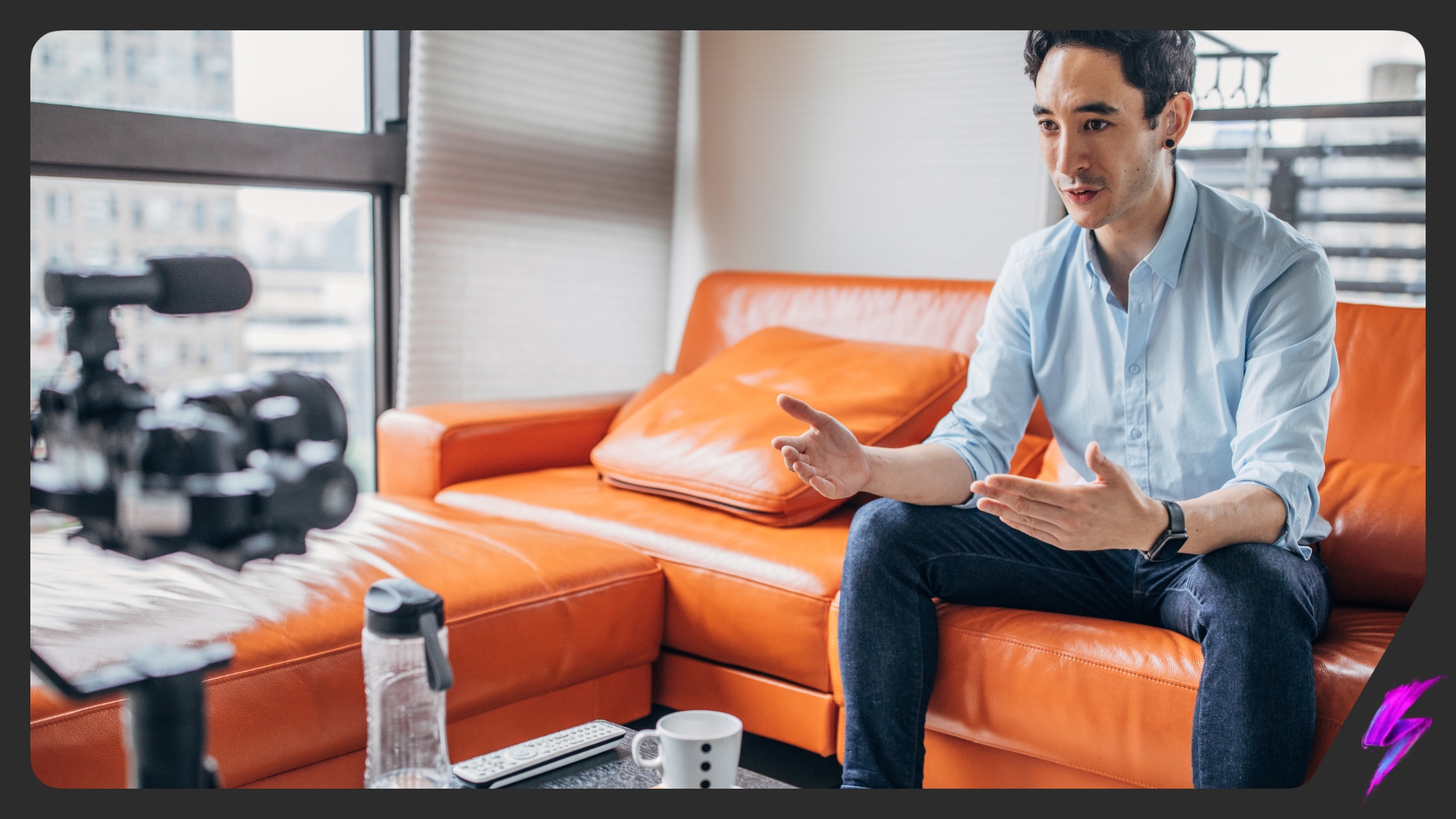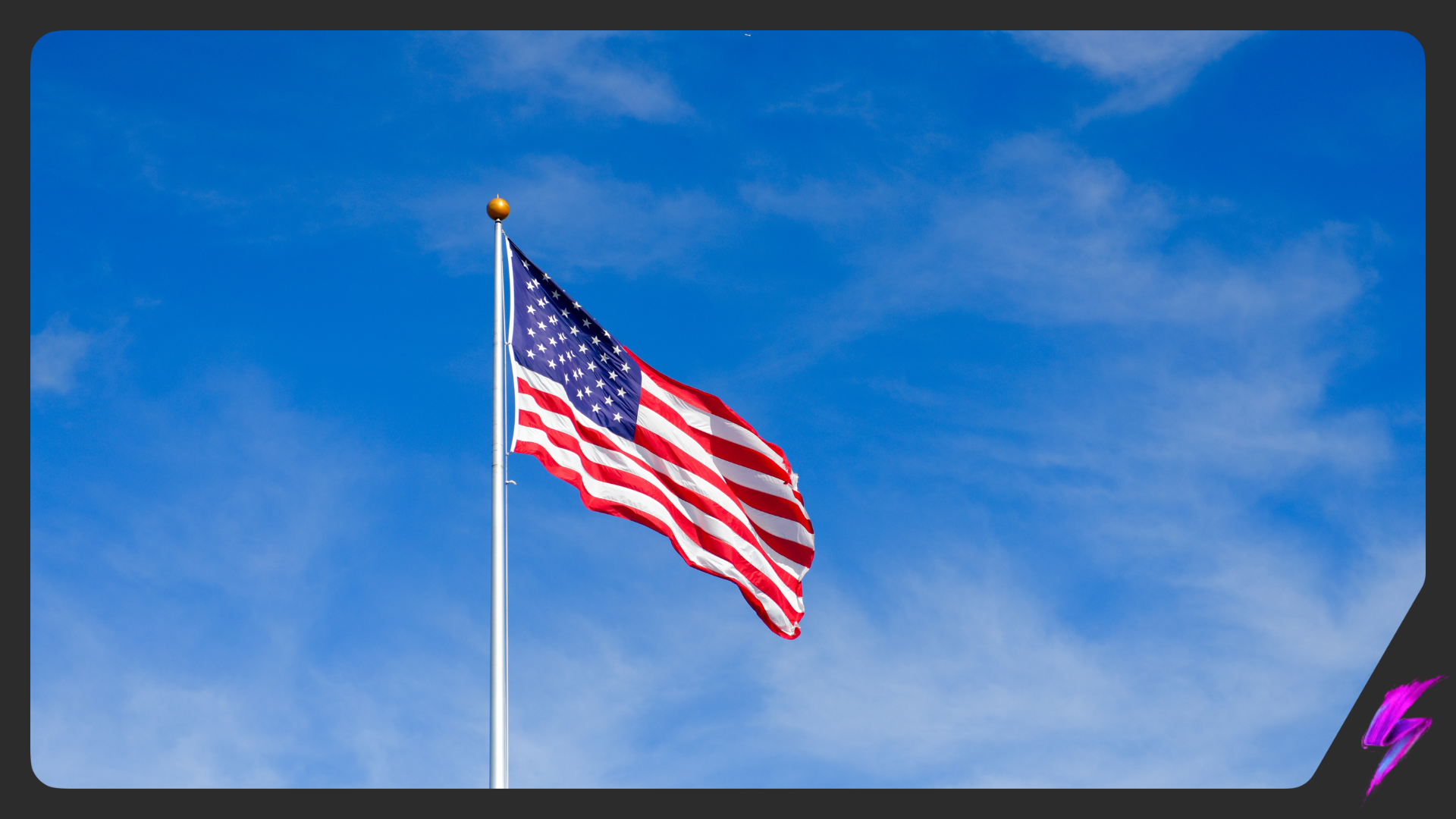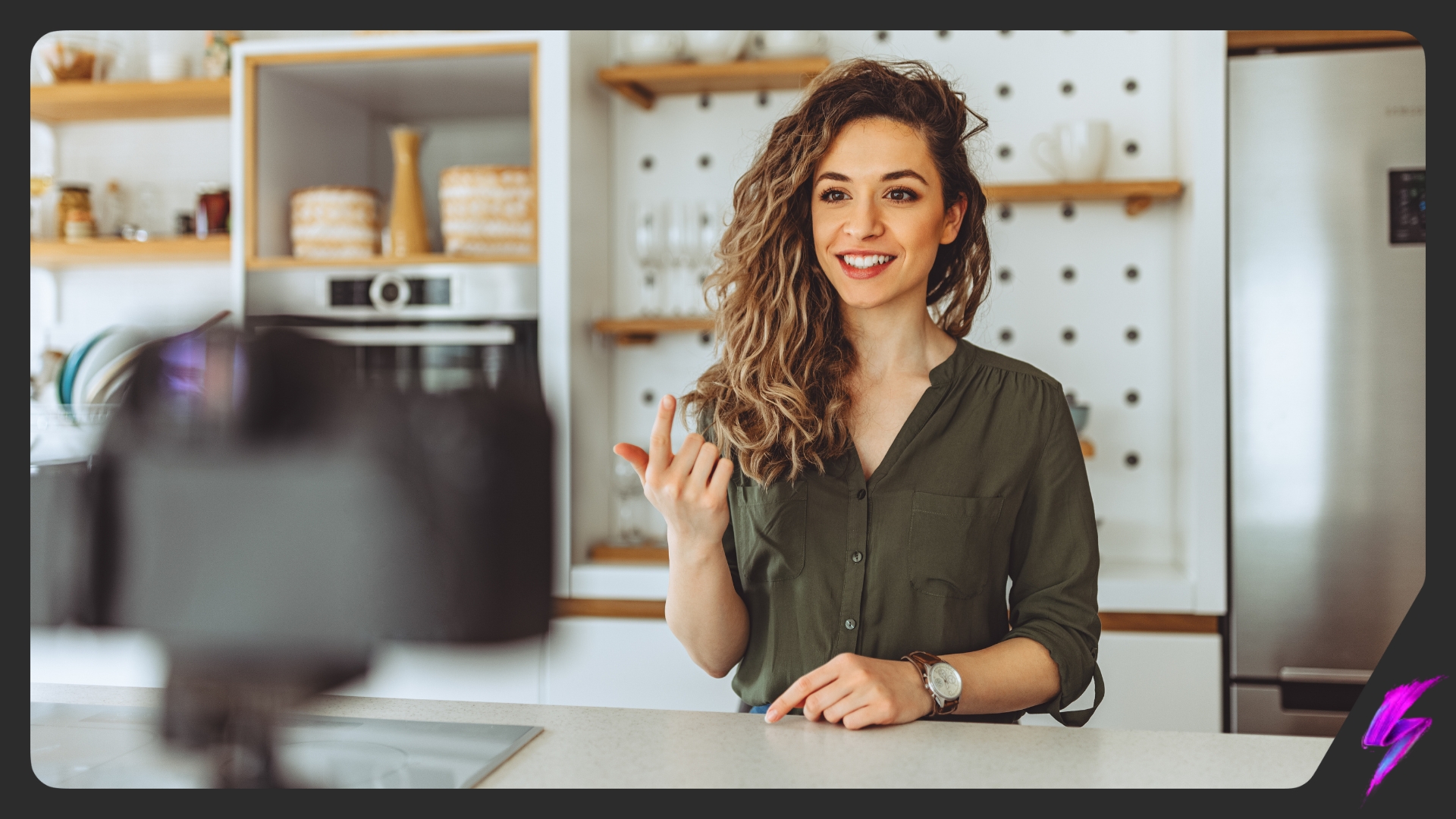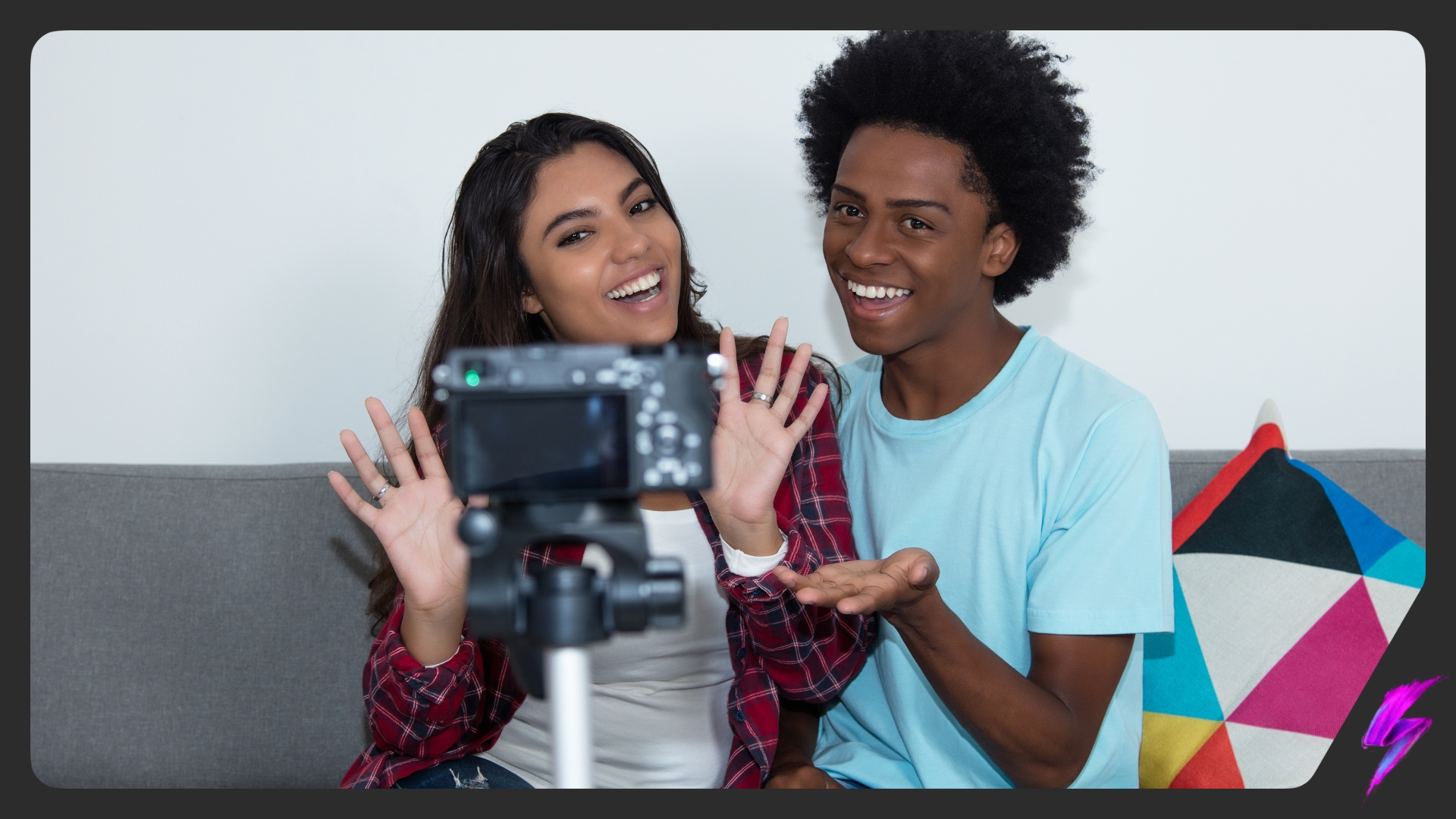When Do Face-Altering Beauty Filters Become Too Much?
Oct 24, 2023
Social Trends
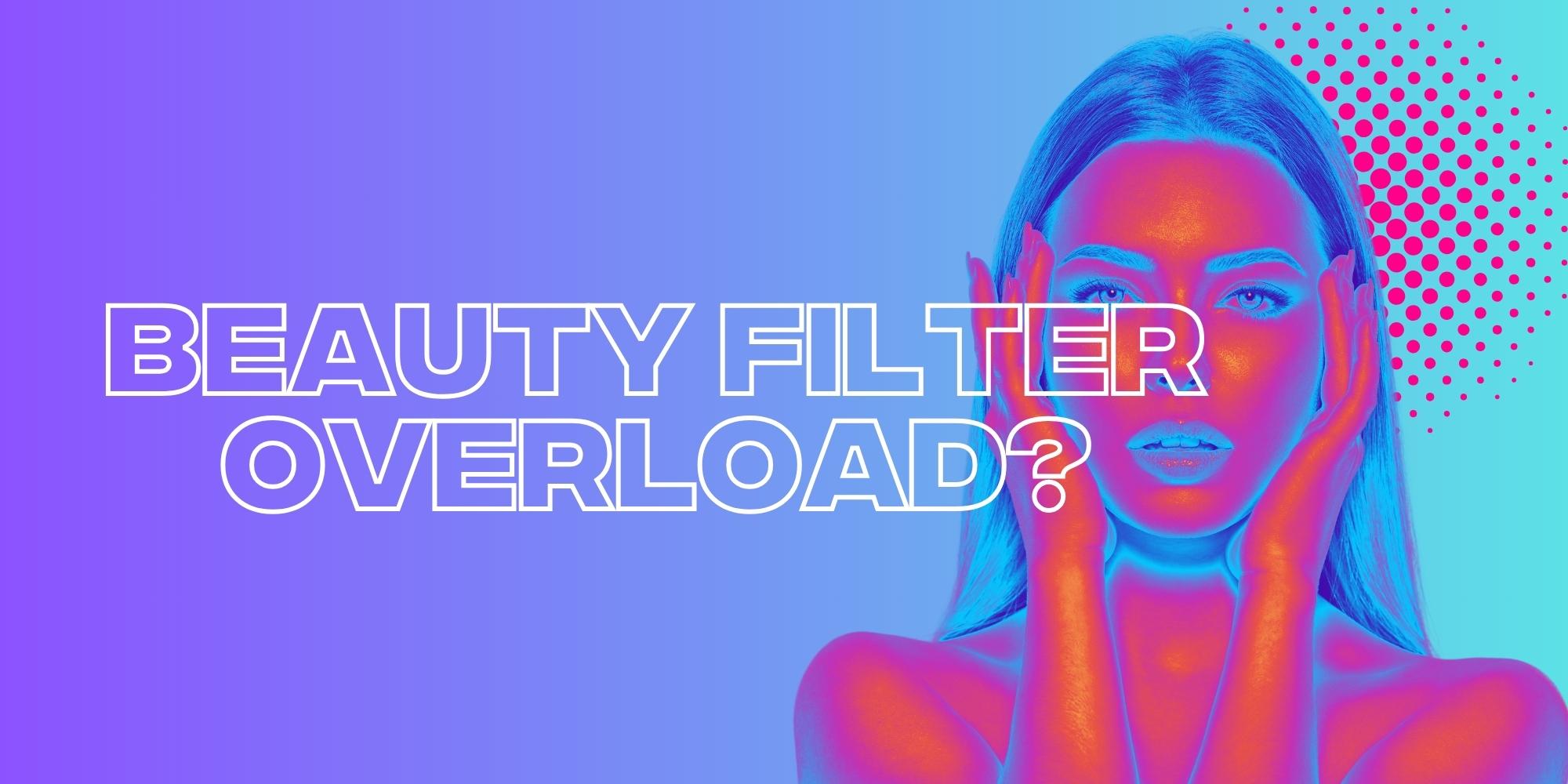
Avid users of social media are often criticised for sharing so much of their lives online, but with the flourishing of face-altering beauty filters, can we be sure we really know the face behind the account?
What began on Snapchat back in 2015 as a fun way to play around with the interactive capabilities of social media, has now turned into a case of setting unrealistic beauty standards. Though some social media platforms have put in place transparency features surrounding beauty filter-use – by attaching a permanent text overlay to one’s TikTok video or Instagram Story stating which filter has been used – this barely seems to be touching the surface in terms of deterrents.
But are beauty filters all bad?
The technological advancements of beauty filters on social media over the years have lent themselves to the creation of pioneering marketing campaigns. Beauty brands Urban Decay and Rimmel often leverage Snapchat’s AR lense capabilities to offer users a try-on experience of their newly-launched makeup products from the comfort of their own home. In this instance, the advancements of beauty filters on social media couldn’t be more welcomed.
However, no technological advancements of this scale are flawless, especially if they fall into the hands of the wrong people.
The direction in which filter-use is headed makes us question whether or not there’s any chance we can return to our 2015 ways of fun-loving, free-wheeling silliness. Or if we’re doomed to be stuck in a perfect, selfie-obsessed digital world forever.
Read on as we delve into the glamour (and horror) of the lip-filling, eye-snatching beauty filters dominating our devices and shaping digital culture one touch up at a time.
THE EFFECTS OF BEAUTY FILTERS ON SOCIAL MEDIA
Societal standards of beauty have changed with decades gone by.
The bold glamour of the 60s is vastly different from the bold glamour we’ve come to know today and the Photoshop retouches that would typically take a whole day now take a matter of seconds.
@chiaraking But why do i like it #boldglamour #boldglamourfilter
We’re knee-deep in the age of digital beauty enhancements and the socialscape is as divided as ever on the matter.
Sure, there are some cases where beauty filters on social media are effective in helping combat a user’s insecurities or helping brand campaigns reach certain audiences, but, in this instance, the bad far outweighs the good.
The bottom line is that it’s getting harder and harder to spot a filtered face. As this challenge increases, more and more users are able to smooth their skin, plump their lips and lift their eyes, undetected.
But the question is why?
Like makeup or cosmetic procedures, people say they use beauty filters to enhance their faces, hide their insecurities and/or tap into “pretty privilege”. But as beauty filters on social media advance, the pushback intensifies. Critics say this pushback promotes unrealistic and Eurocentric beauty standards, leaving young women – in particular – struggling to strike a balance between looking “socially acceptable” and “being authentic”.
What began on Snapchat back in 2015 has now spread to all corners of the internet, with each platform offering up some form of beauty enhancement filter. While these enhancing filters can range – from the addition of faux freckles to the complete alteration of appearance – their acceptance and use across all platforms remains relatively aligned.
But is this acceptance made willingly? Or have the pressures of social media forced it?
Experts conclude that there is a direct link between the use of beauty filters on social media and lower self-esteem, lower confidence and increases in body dysmorphia.
A study by the City University of London concluded that out of 175 participants with an average age of 20, 90% reported using filters and/or editing their photos. However, this issue extends beyond teenagers. Dr. Leela R. Magavi, a Hopkins-trained psychiatrist, said “children and adults of all ages have confided in me and shared that they are ashamed of posting photographs of themselves without the use of filters” and that she’s “assessed some teenagers, men and women who have discussed the idea of getting plastic surgery to look more like the filtered version of themselves”.
But what if you’re someone who recognises that beauty filters on social media are capable of changing your face and can still use them without feeling any of the negative effects?
Well, this can still have the same impact, as the apps running these notorious beauty filters on social media – such as TikTok’s Bold Glamour or Instagram’s Glow – subconsciously implant the notion of imperfection and ugliness. You might not feel the effects straight away, but they run the risk of eating away at you over time.
Even influencers like Alix Earle – who uses the smoothing filter on TikTok to cover her dermatitis – aren’t immune. Frequent use of slightly-altering filters only conditions your mind to reject your appearance when seeing it without the enhancements.
@alixearle Real skin is beautiful ~ dont compare yours to what you see on social media
But when it comes to the use of beauty filters on social media for the purpose of attempting to combat these deeper-rooted insecurities, how much of a responsibility do platforms have regarding how readily available they are?
DISCOURSE VS. ACTION
A lot of what we see, post and interact with online shapes our mental wellbeing – whether intended to or not, and with the advancement and increased use of beauty filters on social media, safeguarding this should be at the top of our and platforms’ priority lists.
So what are social media platforms doing to combat this? And is the onus entirely on them?
Snapchat
What with Snapchat pioneering the beauty filter revolution, it’s slightly disappointing to see so little regulation evidence.
Unlike Instagram and TikTok, Snapchat filters are not disclosed when posting content and given that they are among the most advanced in the socialsphere, content could be very misleading to those who aren’t yet able to spot a filtered face.
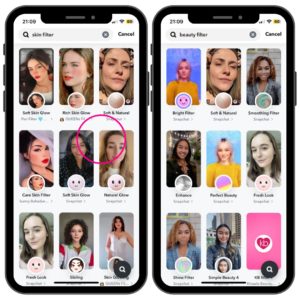
Not only has Snapchat failed to hone in on its transparency features, but it also continues to expand its catalogue with very minimal effort to acknowledge its responsibility in safeguarding the mental health of those who rely on them to meet society’s expectations.
At its 2023 Beauty Summit, Snapchat outlined its coming additions to the app for beauty marketers. These included Bitmoji “beauty drops” and a “Beauty Bestie” makeup try-on feature. Both of these features enable users to virtually try makeup looks and products out as a way of experimenting and helps promote products in a more engaging way. While these new features provide Snapchat users with more ways to interact with beauty products, they still feed into the appearance-altering problem surrounding beauty filters on social media. Though Snapchat claims the new features are merely complementary rather than transformative, we’re still not convinced it can be seen as entirely positive.
Meta
In a Wall Street Journal report, 32% of teen girls said they felt bad about their bodies, with Instagram only made them feel worse, and that among teens who reported suicidal thoughts, 13% of British users and 6% of US users traced the issue to Instagram.
Given the severity of this data, and the fact that over 600 million Meta users have tried at least one of its AR features, we’re pleased Instagram and Facebook have taken regulation policies regarding beauty filters on social media seriously.
From October 2019 – August 2020, Instagram banned these so-called “deformation effects” after noticing the negative impact on the mental health of its users. This policy has since been updated to outlaw only those beauty filters that encourage plastic surgery, though creators often state that these deformation filters are inconsistently flagged due its system not properly being able to detect what exactly encourages plastic surgery.
Facebook filters, on the other hand, undergo an approval process before release that uses a combination of human and automated systems to review things like hate speech and nudity. Users are also able to report filters for manual review.
Us
Makeup and beauty have long been at the centre of cultural debates about how much self-enhancement or self-expression is deemed “too much”. Now, beauty filters on social media shine brightly under the spotlight and it’s important we don’t repeat past mistakes.
So how can we combat the downward self-esteem spirals and pits of negativity from using beauty filters on social media apps?
Dr. Josie Howard, a board-certified psychiatrist says it begins with awareness.
“Cognitively and consciously challenging and reminding ourselves that these images are not real is a good first step” she goes on to advise. Being able to spot the early warning signs is essential in spotting when it’s time for you to take a break from the beauty filters on social media and ground yourself off-screen.
It’s also important to remember that social media platforms are echo chambers, which means their algorithms are specifically designed to feed you one perspective of the world based on who you follow and engage with. In order to take control over what your algorithm is feeding you, consider following more body-positive accounts who don’t rely on beauty filters on social media to determine their self-worth.
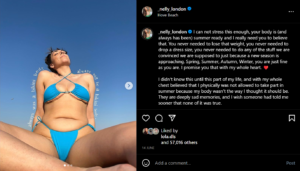
The more you surround yourself online with authentic accounts, the more likely you are to filter out the negativity.
Our Influencer marketing agency and Social agency are located worldwide, with our agency network based in the USA, UK, UAE and China.
If you want to receive our industry insights, visit our Influencer Marketing & Social Media blogs here.
@ Socially Powerful
Social And Influencer Marketing News + Insights
Get in touch
We'll show you how to start powerful conversation, drive social engagement, build your brand, hit sales targets or meet other goals you have, wherever you are in the world.
Work with us

